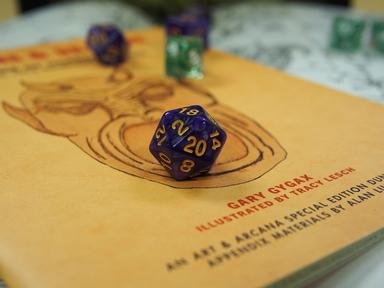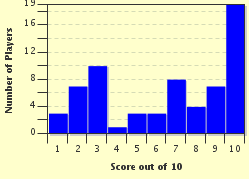Quiz Answer Key and Fun Facts
1. Choosing Elf or Half-Elf as your race will entitle you to Low-light Vision, a racial trait. This means that your character can easily see further than which other race if you're in minimal light?
2. You've chosen a new race and you are deemed a 'small character'. What class (of these) must you have chosen?
3. Every time you level up you roll a specific die to increase the amount of Hit Points you have. What die do you roll if your character is a Barbarian?
4. Which character class is most influenced by their selected deity?
5. If your class is Sorcerer or Wizard, you'll be able to use an animal companion in battle. What is the name of said type of companion which has a magical link to its master?
6. You are told to roll for a Listen skill check. Which of these key attributes will influence the value added to your d20 roll?
7. Toughness, Two-Weapon Fighting, Point-Blank Shot, and Combat Reflexes fall into what aspect of the game?
8. One gold piece equals how many copper pieces in the game?
9. Your weapon allows for 2d6+5 damage in battle. What is the highest amount of damage you can roll (without any additional modifiers)?
10. You have a total of -5 hit points. What does this mean?
Source: Author
kyleisalive
This quiz was reviewed by FunTrivia editor
WesleyCrusher before going online.
Any errors found in FunTrivia content are routinely corrected through our feedback system.

